Words Without Borders’s Women in Translation Month Recommended Reads
Words Without Borders is the oldest major online journal out there devoted exclusively to literature in translation, and still one of the very best. And now WWB’s Liz Cettina has provided a list of recommended books for Women in Translation Month, most of them by authors who have previously been published in WWB’s virtual pages, allowing you to graze before you pick the book that will be your ideal beach-towel companion next weekend. Thank you, Words Without Borders, for publishing all these wonderful women writers this month and all year round!
Here’s the list, or, if you prefer, read it directly on the WWB website.
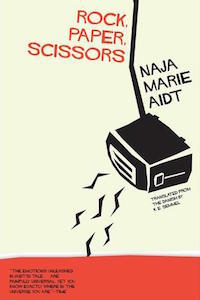 Rock, Paper, Scissors by Naja Marie Aidt
Rock, Paper, Scissors by Naja Marie Aidt
Translated from the Danish by K. E. Semmel
Open Letter Books, 2015
Naja Marie Aidt is a Danish author who has published eight volumes of poetry, three volumes of short stories, and the novel Rock, Paper, Scissors. Shortly after the death of his criminal father, Thomas discovers a secret that changes his life for the worse. Time writes, “The emotions unleashed in this tale . . . are painfully universal. Yet you know exactly where in the universe you are,” and Tony Malone calls it “a story you’ll want to keep reading until the bitter (very bitter) end.”
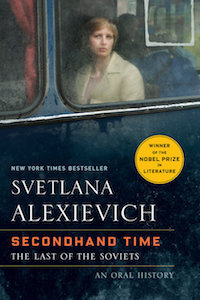 Secondhand Time by Svetlana Alexievich
Secondhand Time by Svetlana Alexievich
Translated from the Russian by Bela Shayevich
Penguin Random House, 2016
Svetlana Alexievich is a Belarusian journalist. She won the 2015 Nobel Prize in literature for “her polyphonic writings, a monument to suffering and courage in our time.” In Secondhand Time, Alexievich provides a history of the disintegration of the Soviet Union and the emergence of a new Russia. Sara Danius, the permanent secretary of the Swedish Academy, noted, “[Alexievich is] offering us a history of emotions, a history of the soul.”
Read Svetlana Alexievich in WWB
T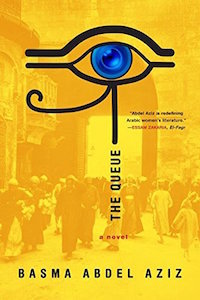 he Queue by Basma Abdel Aziz
he Queue by Basma Abdel Aziz
Translated from the Arabic by Elisabeth Jaquette
Melville House, 2016
Basma Abdel Aziz is a psychiatrist, writer, and sculptor from Cairo, Egypt. Her English PEN Translates Award-winning novel The Queue is set in an unnamed city where a centralized authority known as the Gate has taken power in the aftermath of a failed popular uprising. Citizens are required to obtain permission from the Gate for even the most basic of their daily affairs, yet the building never opens, and the queue in front of it grows longer and longer.
Read an excerpt from Basma Abdel Aziz’s The Queue
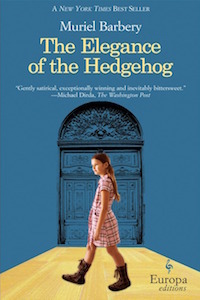 The Elegance of the Hedgehog by Muriel Barbery
The Elegance of the Hedgehog by Muriel Barbery
Translated from the French by Alison Anderson
Europa Editions, 2006
French writer Muriel Barbery portrays the unlikely friendship that develops between a French concierge, Renee (who is secretly learned and highly intelligent), and Paloma, the precocious daughter of a wealthy family who lives in the apartment building. The two protagonists, the New York Times writes, “create eloquent little essays on time, beauty, and the meaning of life.”
Read an excerpt from Muriel Barbery’s The Life of Elves
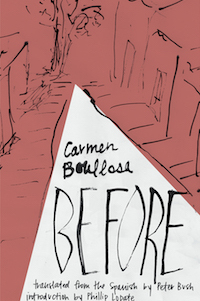 Before by Carmen Boullosa
Before by Carmen Boullosa
Translated from the Spanish by Peter Bush
Deep Vellum Publishing, 2016
Carmen Boullosa is one of Mexico’s leading novelists, poets, and playwrights. Before is a coming-of-age story that explores the end of one woman’s innocence in childhood. Of her writing Juan Villoro says, “I don’t think there’s a writer with more variety in themes and focuses . . . The style and range of Carmen Boullosa is unique for its versatility and its enormous courage.” Before was shortlisted for the 2015 PEN Translation Award.
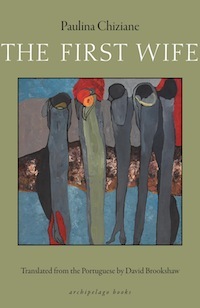 The First Wife by Paulina Chiziane
The First Wife by Paulina Chiziane
Translated from the Portuguese by David Brookshaw
Archipelago Books, 2016
In Mozambican writer Paulina Chiziane’s novel, Rami discovers that her husband, Tony, is cheating on her with five other women, each of whom tries to get whatever she can (money, security, social standing) from him. Carolyn Silveira writes, “While the book opens with the epigraph, ‘A woman is earth. If you don’t sow her, or water her, she will produce nothing,’ ultimately, it is a passionate testament to the life, love, creativity, and resilience all women can produce.”
Read WWB’s review of The First Wife
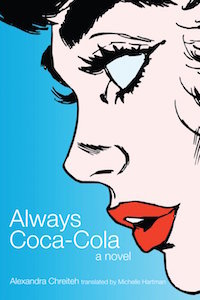 Always Coca-Cola by Alexandra Chreiteh
Always Coca-Cola by Alexandra Chreiteh
Translated from the Arabic by Michelle Hartman
Interlink Publishing, 2012
Alexandra Creiteh is a Lebanese author known for her frank portrayals of contemporary life in Beirut. Always Coca-Cola is the story of three different women attending university and their seemingly trivial “female” problems. Emma Garman writes that these “chick-lit” problems embed “a razor-sharp commentary on how young women in Beirut today are buffeted by the alternately conflicting and conspiring forces of hegemony, capitalism, and patriarchy—without, vitally, ever using such dry terms.”
Read WWB’s review of Always Coca-Cola
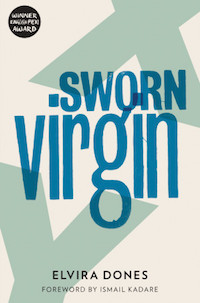 Sworn Virgin by Elvira Dones
Sworn Virgin by Elvira Dones
Translated from the Italian by Clarissa Botsford
And Other Stories, 2007
Elvira Dones is an Albanian novelist, screenwriter, and documentary filmmaker. After writing seven novels in Albanian, Dones wrote two in Italian, one of which is Sworn Virgin. The protagonist, Hana, is unwilling to accept the arranged marriage her uncle has proposed. But to remain independent, she must follow tradition and vow to live the rest of her life in chastity as a man. Ismail Kadare says, “The protagonist of this novel passes through all the tribulations of this frightening transformation like the actor . . . in a classical drama that hurtles toward its dénoument.”
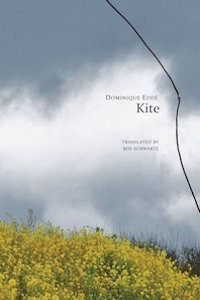 Kite by Dominique Eddé
Kite by Dominique Eddé
Translated from the French by Ros Schwartz
Seagull Books, 2012
Lebanese author Dominique Eddé blends memoir and fiction as she explores the passionate and tragic relationship between Mali and Farid in the context of the decline of Egyptian-Lebanese society. Beginning in the 1906s and ending in the late 1980s, Kite explores social and cultural tensions and the human casualties of war. The novel was longlisted for a 2013 Best Translated Book Award.
Read WWB’s 2008 issue: The Groves of Lebanon
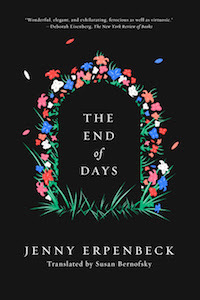 The End of Days by Jenny Erpenbeck
The End of Days by Jenny Erpenbeck
Translated from the German by Susan Bernofsky
New Directions Publishing, 2016
German author Jenny Erpenbeck’s fiction includes The Book of Words and Visitation. The End of Days recounts five different stories about the same unnamed woman, each of which results in her death and begs the question, “What if things had happened differently?” Nicole Krauss says, “The brutality of her subjects, combined with the fierce intelligence and tenderness at work behind her restrained, unvarnished prose, is overwhelming.”
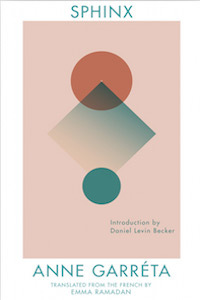 Sphinx by Anne F. Garreta
Sphinx by Anne F. Garreta
Translated from the French by Emma Ramadan
Deep Vellum Publishing, 2016
Anne F. Garreta is the first member of the Oulipo to have been born after the group was founded, and Sphinx is the first novel by a female member of the Oulipo in English. The novel is a love story in which the genders of the lovers are never specified. Quoting queer linguistic theorist Anna Livia, Jane Yong Kim writes, “Sphinx falls into the cadre of literary works that ‘problematize the traditional functioning of the linguistic gender system.’”
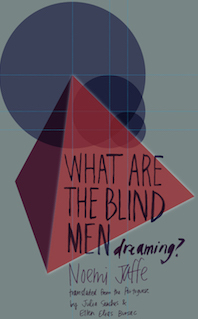 What are the Blind Men Dreaming? by Noemi Jaffe
What are the Blind Men Dreaming? by Noemi Jaffe
Translated from the Portuguese by Julia Sanches & Ellen Elias-Bursac
Deep Vellum Publishing, 2016
Noemi Jaffe is an award-winning Brazilian author of novels, short stories, poetry, and literary nonfiction. Jaffe’s nonfiction book, What are the Blind Men Dreaming?, portrays three generations of women—their reflections on the Holocaust and how these reflections are influenced by their Brazilian and Jewish identities.
Read an excerpt from What are the Blind Men Dreaming?
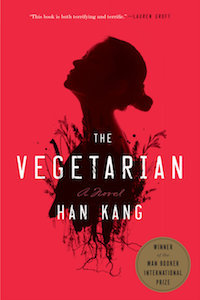 The Vegetarian by Han Kang
The Vegetarian by Han Kang
Translated from the Korean by Deborah Smith
Penguin Random House, 2016
South Korean writer Han Kang’s novel The Vegetarian won the 2016 Man Booker Prize for International Fiction. In this allegorical tale about a woman’s confrontation with violence, Yeong-hye decides to become vegetarian. Her husband and family members try to change her mind, but she stands by her decision. The New York Times says, “Like a cursed madwoman in classic myth, Yeong-hye seems both eerily prophetic and increasingly unhinged.”
Read an excerpt from Han Kang’s The Vegetarian
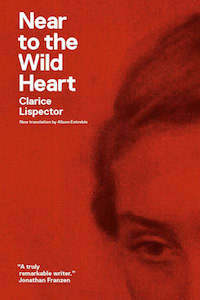 Near to the Wild Heart by Clarice Lispector
Near to the Wild Heart by Clarice Lispector
Translated from the Portuguese by Alison Entrekin
New Directions Publishing, 2012
Clarice Lispector was born in the Ukraine to a Jewish family who fled to Brazil in 1922. Her first novel follows the interior monologue of its protagonist, Joana, who wants to live, “near to the wild heart of life,” and Lispector’s writing follows suit. The New York Times describes her work as “enigmatic, mystical, confounding and philosophical.”
Read WWB’s review of Clarice Lispector’s stories
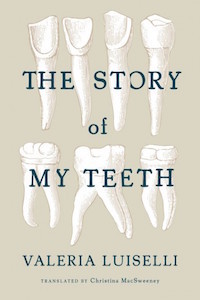 The Story of My Teeth by Valeria Luiselli
The Story of My Teeth by Valeria Luiselli
Translated from the Spanish by Christina MacSweeney
Coffee House Press, 2015
Valeria Luiselli was born in Mexico City and grew up in South Africa. The protagonist of The Story of My Teeth is Highway, an auctioneer (read: storyteller (read: liar (read: legendary auctioneer))) whose most precious possessions are the teeth of the “notorious infamous,” including Plato and Virginia Woolf. Luiselli wrote the book, which won the Los Angeles Times Book Prize, in installments for workers in a juice factory in Mexico.
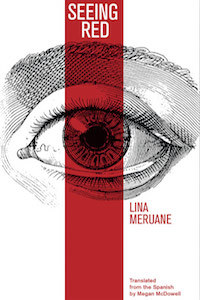 Seeing Red by Lina Meruane
Seeing Red by Lina Meruane
Translated from the Spanish by Megan McDowell
Deep Vellum Publishing, 2016
Lina Meruane is a Chilean author whose work, written in Spanish, has been translated into English, Italian, Portuguese, German, and French. Seeing Red is based on Meruane’s own experience of blindness—the novel follows a young Chilean writer who moves to New York for doctoral work and suffers a stroke that leaves her blind. Of her prose, Roberto Bolaño said, “it emerges from the hammer blows of conscience, but also from the ungraspable and from pain.”
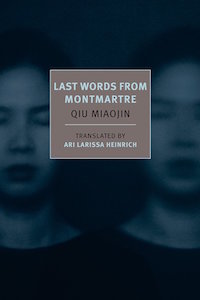 Last Words from Montmartre by Qiu Miaojin
Last Words from Montmartre by Qiu Miaojin
Translated from the Chinese by Ari Larissa Heinrich
NYRB Classics, 2014
Qiu Miajin was one of Taiwan’s most innovate literary modernists and the country’s most renowned lesbian writer. The posthumous publications of her novels Last Words from Montmartre and Notes of a Crocodile made her one of the most revered countercultural icons in Chinese letters. Last Words from Montmartre unfolds in a series of letters written by an unnamed narrator that reveal the story of a passionate relationship between two young women.
Read an excerpt from Last Words from Montmartre
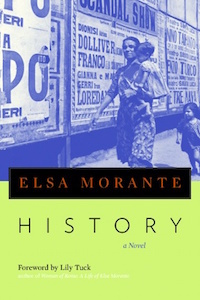 History by Elsa Morante
History by Elsa Morante
Translated from the Italian by William Weaver
Steerforth Press, 2000
Elsa Morante is an Italian novelist whose work Elena Ferrante has called “unsurpassable.” History recounts Italy’s wartime years through the eyes of a poor Roman family, portraying history’s violent and pitiless effects on the lives of common people. Esquire describes the book as “One of the few novels in any language that renders the full horror of Hitler’s war,” and the New York Review of Books calls Morante “A storyteller who spellbinds.”
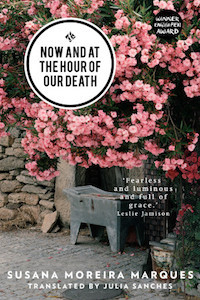 Now and at the Hour of our Death by Susana Moreira Marques
Now and at the Hour of our Death by Susana Moreira Marques
Translated from the Portuguese by Julia Sanches
And Other Stories, 2015
Susana Moreira Marques is a writer and journalist who lives in Lisbon. Accompanying a palliative care team, Moreira Marques travels to Trás-os-Montes, a forgotten corner of northern Portugal. She visits villages to listen to families facing death and grants us their stories, accompanied by her own musings.
Read an excerpt from Now and at the Hour of our Death
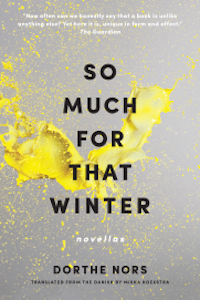 So Much for that Winter by Dorthe Nors
So Much for that Winter by Dorthe Nors
Translated from the Danish by Misha Hoekstra
Graywolf Press, 2016
Dorthe Nors is the first Dane ever to have a piece of fiction published in the New Yorker. So Much for That Winter contains two novellas, both of which chronicle the aftermath of two twenty-first century romances with humor and empathy. The Los Angeles Times writes, “Nors’s writing is by turns witty, gut wrenching, stark, and lyrical . . . That she achieves all this while experimenting with form is something of an impossible feat.”
Read an interview with Dorthe Nors on WWB
 Extracting the Stone of Madness by Alejandra Pizarnik
Extracting the Stone of Madness by Alejandra Pizarnik
Translated from the Spanish by Yvette Siegert
New Directions Publishing, 2016
When Argentinian poet Alejandra Pizarnik committed suicide at the age of thirty-six, she left behind a huge collection of poems documenting her inner life. Of Extracting the Stone of Madness Emily Lever writes, “Pizarnik concisely alludes to the torments of artistic creation through the depiction of suffering that is specific to the female body.”
Read WWB’s article on Alejandra Pizarnik
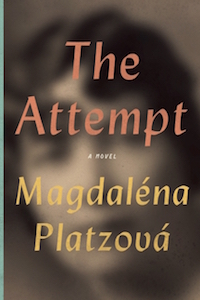 The Attempt by Magdaléna Platzová
The Attempt by Magdaléna Platzová
Translated from the Czech by Alex Zucker
Bellevue Literary Press, 2016
Emma Garman describes Czech author Magdaléna Platzová’s The Attempt as “a powerfully distilled meditation on the meaning of freedom.” Based on the lives of Alexander Berkman and Emma Goldman, the novel follows a Czech historian convinced that he is the illegitimate great-grandson of an infamous anarchist. He travels to New York to investigate during the height of the Occupy Wall Street movement.
Read Magdaléna Platzová in WWB
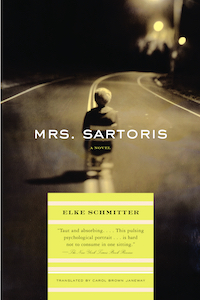 Mrs. Sartoris by Elke Schmitter
Mrs. Sartoris by Elke Schmitter
Translated from the German by Carol Brown Janeway
Penguin Random House, 2004
German author Elke Schmitter’s Mrs. Sartoris is a modern retelling of Flaubert’s Madame Bovary. Like Emma Bovary, Margarethe Sartoris has fallen into a life of numbing monotony with her pleasant husband in a provincial town. Then she meets a married man named Michael who offers the opportunity for a life filled with excitement, eroticism, and desire.
Read an excerpt from Elke Schmitter’s Mrs. Sartoris
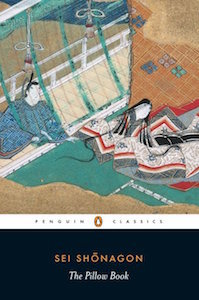 The Pillow Book by Sei Shonagon
The Pillow Book by Sei Shonagon
Translated from the Japanese by Meredith McKinney
Penguin Classics, 2007
Sei Shonagon was a Japanese writer who lived among the nobility in tenth-century Japan. The Pillow Book is comprised of witty and intimate observations and descriptions of Shonagon’s life as a gentlewoman at the height of the Heian period. Michael Dirda describes it as “a mixture of diary, aide-memoire, naturalist’s journal, gossip column, and oral history . . . memorializing in its daring, quicksilver fashion the wonderful dailiness of life.”
 Facing the Bridge by Yoko Tawada
Facing the Bridge by Yoko Tawada
Translated from the Japanese by Margaret Mitsutani
New Directions Publishing, 2007
Yoko Tawada’s provocative and original work explores the ways that nationhood, languages, and gender affect people in our world of shifting, fluid boundaries. Facing the Bridge contains three tales that float between cultures, identities, and the dreamwork of the imagination. The New York Times writes, “Tawada’s stories agitate the mind like songs half remembered or treasure boxes whose keys are locked within.”
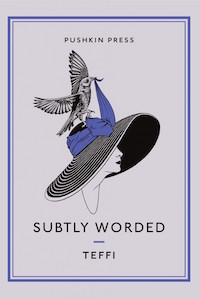 Subtly Worded by Teffi
Subtly Worded by Teffi
Translated from the Russian by Robert Chandler
Pushkin Press, 2014
Teffi is often called the female Chekhov, which, while laudatory, is sexist in its implication that any female writer is only relevant when granted a male equivalent. Teffi herself would likely have scorned such a comparison. In Subtly Worded, Pushkin Press has collected works that show Teffi at her most wry and scathing. She is a relentless observer, and critic, of prerevolutionary Russian society. The New Yorker writes, “there are few human weaknesses she did not relate to with compassion and understanding.”
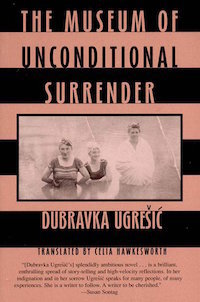 The Museum of Unconditional Surrender by Dubravka Ugrešic
The Museum of Unconditional Surrender by Dubravka Ugrešic
Translated from the Croatian by Celia Hawkesworth
New Directions Publishing, 2002
Dubravka Ugrešic is a post-Yugoslav writer, who has lived in both Croatia and Amsterdam. This fragmented nationality is the subject of this book, in which she confronts her past through themes of art, history, aging, and loss. Susan Sontag calls her work a “brilliant, enthralling spread of story-telling and high-velocity reflections . . . She is a writer to follow. A writer to be cherished.”
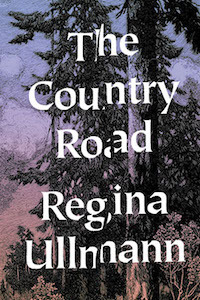 The Country Road by Regina Ullmann
The Country Road by Regina Ullmann
Translated from the German by Kurt Beals
New Directions Publishing, 2015
Swiss-born Regina Ullmann was a contemporary of Thomas Mann who once said, “Her voice is something holy.” The Country Road is Ullmann’s English-language debut and consists of stories set in the Swiss countryside. The stories are fantastical and mysterious, almost as obscure as Ullmann herself.
Read WWB’s review of The Country Road
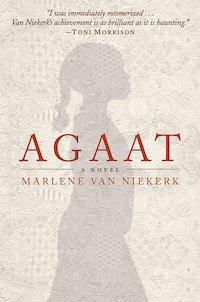 Agaat by Marlene van Niekerk
Agaat by Marlene van Niekerk
Translated from the Afrikaans by Michiel Heyns
Tin House Books, 2010
Marlene van Niekerk is a prominent South African author whose novel Agaat Toni Morrison hails as “the most extraordinary book I have read in a long, long time”. The Times Literary Supplement describes it as “The most important South African novel since Coetzee’s Disgrace.” The novel portrays the relationship between a sixty-seven-year-old white woman, Milla, and her black maidservant turned caretaker, Agaat.
Read an excerpt from Marlene van Niekerk’s Agaat
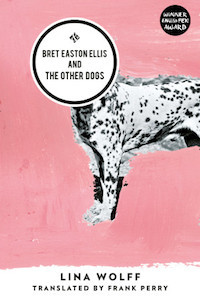 Bret Easton Ellis and the Other Dogs by Lina Wolff
Bret Easton Ellis and the Other Dogs by Lina Wolff
Translated from the Swedish by Frank Perry
And Other Stories, 2016
The first novel of Swedish author Lina Wolff, Bret Easton Ellis and the Other Dogs portrays a run-down brothel in Caudal, Spain, where the prostitutes collect stray dogs, each of which they name after a famous male writer. Meanwhile in Barcelona, a teenager tries to trace her life back to one woman: Alba Cambó, a writer of violent short stories.
Read an excerpt from Bret Easton Ellis and the Other Dogs
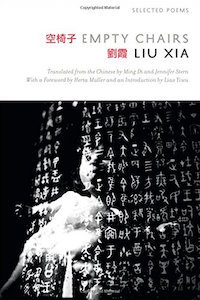 Empty Chairs by Liu Xia
Empty Chairs by Liu Xia
Translated from the Chinese by Ming Di and Jennifer Stern
Graywolf Press, 2015
Liu Xia is a Chinese poet, artist, and photographer, and the wife of an oft-imprisoned activist, Liu Xiaobo. She wrote Empty Chairs while she was under house arrest and her husband was incarcerated. As the title suggests, Liu confronts themes of isolation, domesticity, and loneliness. The Washington Post calls the collection “A testament to the human spirit when that spirit is confined . . . bold and vital.”
By the way, some of the books recommended here are currently on sale (40% off) for WIT Month. Hope you have a great time #readingwomen!
The post Words Without Borders’s Women in Translation Month Recommended Reads appeared first on TRANSLATIONiSTA.
Susan Bernofsky's Blog
- Susan Bernofsky's profile
- 62 followers



